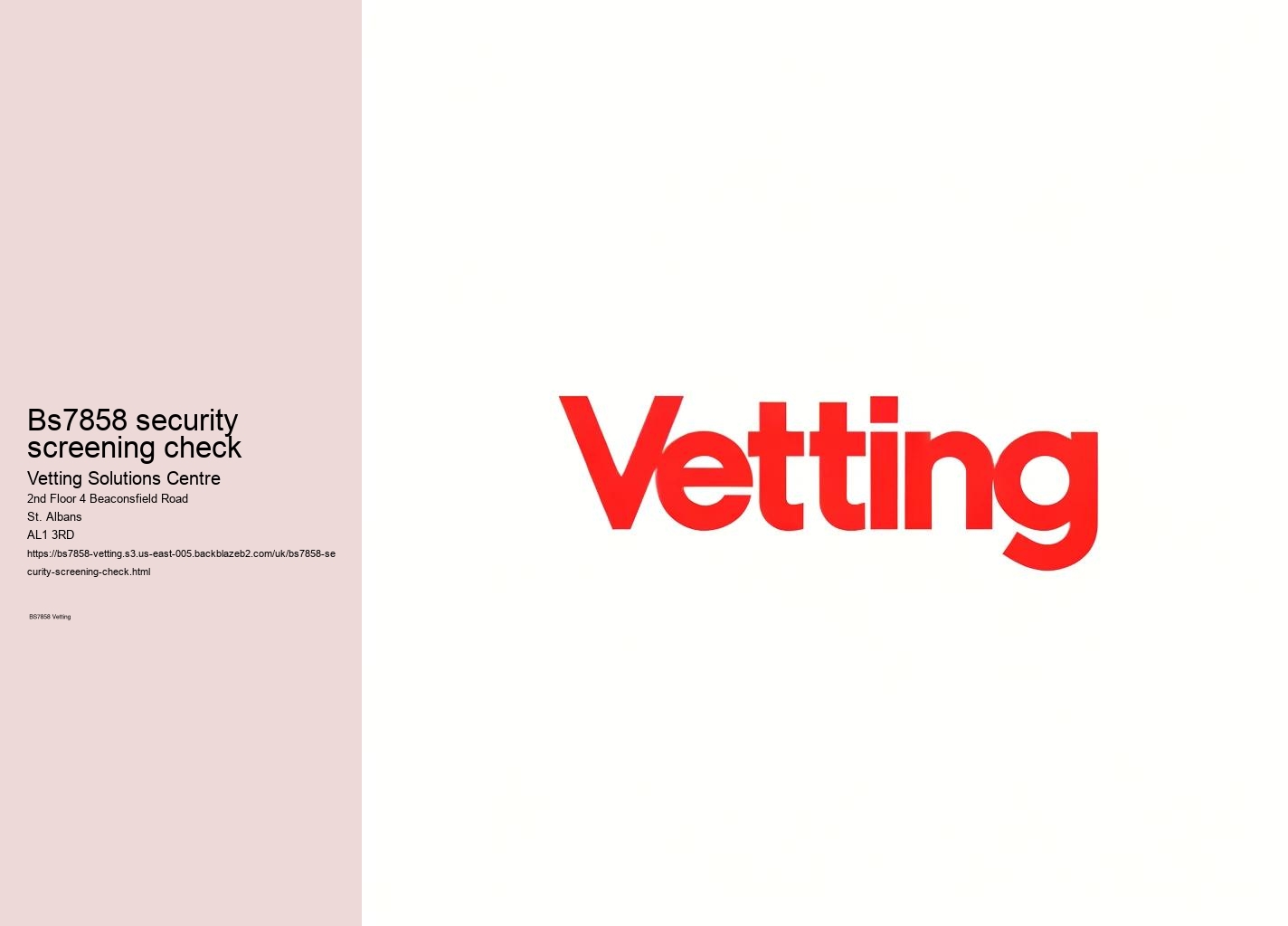

In the pursuit of unparalleled security within your organization, BS7858 vetting emerges as a critical and thorough screening process, crucial for setting a high security bench-mark. This process is comprehensive, spanning from essential background verifications to detailed analyses of employment histories, thereby covering every security aspect necessary for safeguarding your workplace.
Transforming Recruitment with BS7858 Vetting
BS7858 vetting stands as a testament to the commitment to security, introducing rig-orous measures like credit evaluations and international sanction screenings to enhance vetting standards. This meticulous approach is pivotal for transforming recruitment practices, ensuring a secure and trustworthy workforce.
Navigating the BS7858 Security Screening Landscape
At the heart of the BS7858 Security Screening lies the principle of trustworthiness, piv-otal for positions within secure or high-risk environments. The British Standards Institu-tion (BSI) has curated this standard to ensure individuals are subjected to an extensive vetting process. This includes checks from basic DBS to detailed assessments over a five-year employment history, integrating additional evaluations like credit and sanc-tions screenings to fortify trust and safety in hiring practices.
Evolving Standards: The Transition from BS7858:2012 to BS7858:2019
The evolution of BS7858 reflects significant enhancements, notably the introduction of social media evaluations and the removal of character references to streamline and fo-cus on objective assessments. The addition of global watchlist checks and specific re-tention periods for candidate files in the 2019 revision underscores a shift towards a more comprehensive vetting process.
Harnessing the Benefits of BS7858 for Enhanced Security
Adopting BS7858 vetting provides a robust framework for extensive background checks, crucial for environments sensitive to security. This adoption not only ensures peace of mind but also reinforces compliance with industry regulations, adding an es-sential layer of protection. Targeted towards various sectors, including finance and healthcare, BS7858 vetting is instrumental in fostering secure workplaces and reliable employees.


Identifying the Core Audience and Vetting Criteria of BS7858
BS7858 vetting is primarily aimed at employees within the private security sector, indi-viduals in high-security roles, and those in positions of trust. The vetting criteria extend beyond basic ID and work right checks, demanding a thorough review of a candidate's employment history and financial integrity, among other aspects, to ascertain their suit-ability for secure environments.
Deciphering the BS7858 Screening Process for Optimal Security
The screening process under BS7858 meticulously verifies candidates through several essential checks, emphasizing identity verification, legal work status, detailed employ-ment history, and financial stability, alongside evaluations for any potential risk factors. This comprehensive approach is voluntary but highly recommended for businesses committed to maintaining secure and trustworthy environments.
Drawing Comparisons and Understanding Documentation Requirements
While contrasting BS7858 with other screening standards like BPSS, it's clear that BS7858 offers a more in-depth approach, suitable for sectors demanding higher securi-ty vigilance. The process requires a set of valid documents, from primary identification to proof of address and right to work, ensuring a thorough and successful screening outcome.


In Conclusion: The Indispensable Nature of BS7858 Vetting
BS7858 vetting is indispensable for organizations aiming to ensure the highest security standards. Through its detailed and comprehensive checks, BS7858 provides the assur-ance of a secure, reliable workforce, embodying the essence of trust and safety in to-day's challenging security landscape. Trust in the rigor of BS7858 vetting to fortify your organizational security.
BS7858, BPSS (Baseline Personnel Security Standard), and SC (Security Clearance) are all security vetting processes used in the UK, but they serve different purposes and apply to various levels of security requirements. Here's a simplified comparison:
BS7858
• Purpose: It's designed for individuals working in secure environments, like those handling sensitive information or valuable assets. It's common in the private sector, particularly in security and IT.
• Checks Include: Identity verification, criminal record check, credit check, employment his-tory for the past five years, and sometimes social media and international watchlist checks.
